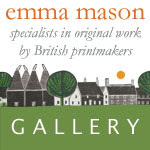 Rachel Spring
Rachel Spring
www.rachelspring.co.uk
Sculpture exploring evolution and cognitive archaeology. I use whichever media is most propitious and, because of its immediacy, this is very often clay.
I am struck by how the DNA of the human race
has remained almost constant during the past 30 thousand years.
- how our evolution has happened in our heads,
through our modes of engagement with the world,
and so manifests itself in this world around us.
- how we are able to imagine the world other than how it is, and make it so.
- the extent to which we shape the world
and are in turn shaped by what we have made of it.
Like a cognitive archaeologist,
you can make an object a map to a particular mode of engagement with the world.
My primary media are clay and glaze.
My work is in private collections in Europe, Russia and the USA
My studio is on the south coast of England, in Hastings Old Town, East Sussex
News
I am currently collaborating with a Hastings Old Town fisherman / film-maker Peter White, for an exhibition at that solitary blend of estuary industry and estuary nature reserve, Rye Harbour - see http://rachelspring.co.uk/events.htm for details.
And during Brighton Art Fair my work will appear in new international magazine 'Booklet' http://www.booklet.ws/ with stylist Heidi Taylor. 
Do you work best on your own or in collaboration
I exhibit very actively and work intensely to keep up, rising with the sun and using all available natural light, so there is no time for collaboration in my studio. However, I see exhibiting as a form of collaboration, with curators, other artists and with all who experience the exhibition. Collaboration with video artists and photographers in the recording of my work is also very important to me. I occasionally undertake other forms of collaboration when they have a particular resonance for me. I have collaborated with a sound artist, using clay to explore sound. I’m currently collaborating with one of my neighbours, Peter White, who makes his living as a fisherman in one of the largest fleet of beach-launched fishing craft in the country, but who is also a photographer and ties his video to his mast as he fishes.
How much do you bend your 'vision' to suit the marketplace?
Not at all. I feel it is illogical to do this, as if one were to wish to create a product tailored for sale, one could produce something far more financially profitable than art. When I have a waiting list, or have accepted a commission, I am effectively making work for the individual who is waiting for it, and if I have seen the individual I inevitably retain an image of him or her in my mind, which can show itself in the resulting work, particularly as all of my work is unique.
Who would you say buys your work?
Comments from my buyers indicate overwhelmingly that they desire what is ‘different’. Some of my collectors travel the world looking to be taken out of the familiar. My buyers tend to be confident of their own vision, and are often looking for a unique statement piece for hall, dinning room, stairway, or garden. Many are themselves professionals within the creative industries.
How do you set about starting a new project?
I have a constant flow of ideas and retain them in a chamber in my mind. Once one idea is realised, I take the results to the next exhibition, and contact those waiting to see them. By then I have already committed myself to starting on whichever of the unrealised ideas in that chamber in my mind is making the most noise.
What do you have on your pinboard?
I don’t have a pinboard. My studio walls are covered in sketches, and other than sketching I try to work paper-free. I prefer to allow ideas to germinate in my mind rather than fixing them in writing. My computer stores what is not in my head, eg technical information. And my diary serves as a timetable.
Where and what is your studio?
I work from my studio which is within my home, in solitude, to the sound of birdsong and the occasional siren, and the roar of the primitive gas kiln when I am using it. I mostly use two electric kilns, one of which is very large. I am environmentally conscious and my electric kilns are state of the art, programmed to use the minimum of energy, and very well insulated, operating like night storage heaters, providing just enough heat and no more. If I listen during the night, I can hear them discreetly clicking on and off.
Surprising activity/hobby?
Anticipating the day’s work under a dawn sky.
Do you have a good work/life balance? Are you able to switch off from art work?
Art and life are one for me, and I am grateful to those around me for not minding, hopefully even enjoying, this.
Would you rather be doing something else?
Sometimes, after several weeks of 12 hour days, I experience a momentary craving for sleep.
Do you think art and craft has any real importance?
Art stirs our intellect and our senses. It awakens us to possibilities. This awareness, that things could be other than they are - this imagination - enables human evolution. What could be more important than this?
Tuesday, 4 September 2007
ARTIST OF THE WEEK - RACHEL SPRING
Posted by
Jon
at
11:36
![]()
Subscribe to:
Post Comments (Atom)







No comments:
Post a Comment